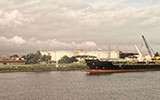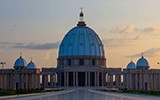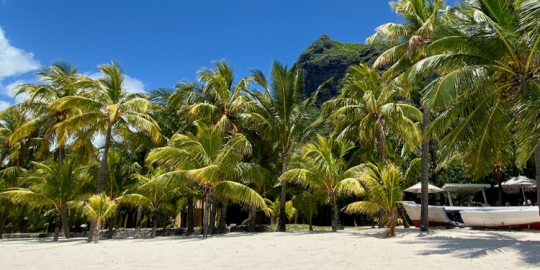What are the banks operating in Ivory Coast? How to proceed to open a bank account? Find out in this article.
Living in Ivory Coast guide for expats
All the information you need to relocate and live in Ivory Coast.
Our selection of articles for expatriation in Ivory Coast
Are expatriates eligible to public health care in Ivory Coast? What about the private health system? Find out in this article.
Looking forward to move to Ivory Coast? Here are an overview of its labor market and some tips to help you land a job.
Looking forward to set up a business in Ivory Coast? Find all that you need to know on related procedures in this article.
Do you need a visa to travel to Ivory Coast? What are the different types of visa that apply and related formalities? Find out in ...
Formalities related to traveling to Ivory Coast are strict but simple. Find some useful information in this article.
Can foreigners study in Ivory Coast? What does the higher education system look like? Find out in this article.
Do you have to pay tax in Ivory Coast? What are the taxes that apply to expatriates? Find out in this article.
Wondering how to move around in Abidjan? Find, in this article, all that you need to know on the Ivorian capital city's ...
Ivory Coast has a small but developed transport network. Find out, in this article, what are the means of transport available in ...
Wondering how to travel to Ivory Coast with your pet? Find the answers to your queries in this article.
Looking for a job in Grand-Bassam? Here are some tips on this major Ivorian city's labor market.
Ivory Coast is with no doubt one of the most connected African countries. Find out, in this article, how to obtain a phone or ...
If you are looking forward to work in a West African city, why not turn towards Abidjan? Find, in this article, some tips on its ...
What are the career prospects available in Yamoussoukro? How to proceed to find a job there? Find out in this article.
About Ivory Coast
West Africa is deemed to be a land of opportunities for expatriates. So if you are looking forward to settle and work in one of its countries, you might be seduced by Ivory Coast. Bordered to the North by Mali and Burkina Faso, to the West by Liberia and Guinea and by Ghana to the East, Ivory Coast stretches over 322,463 km².
The South coast, for its part, is bordered by the Atlantic Ocean over some 520 km.
Demography
As a rapidly developing country, Ivory Coast has a booming population which, to date, amounts to more than 20 million inhabitants. Immigration also accounts for this surprising population growth. Indeed, many expatriates have chosen to settle there over the years, especially people coming from the Economic Community Of West African States (ECOWAS). Hence, you are likely to come across expatriates from Mali, Guinea, Senegal, Liberia, Ghana, Lebanon, Syria, as well as Asian and European nationals.
Languages
Being a French-speaking country, Ivory Coast is a member of the Organisation internationale de la Francophonie. In fact, French is spoken by 70% of the local population, but other languages such as the 'sénoufo', 'dioula', 'bété', 'yacouba' and 'agni' are also spoken in the North and the South the country. Finally, dialects such as 'néyo', 'dida', 'nyabwa' and 'krahn' are widely spoken elsewhere.
Economy
In 2013, Ivory Coast's Gross Domestic Product (GDP) amounted to US$ 31,06 billion according to the World Bank.
The local economy mainly relies on agriculture. In fact, it ranks 7th worldwide in terms of coffee production. Cocoa culture is as important in Ivory Coast which ranks 1st ahead of Ghana. The production of palm and coconut oil, cotton, rubber-wood, cola nuts, is also very significant.
Food crops come in the second place. Ivory Coast produces namely maize, rice, yam, cassava, plantain, citrus, bergamot and bitter orange.
Coffee, cocoa, sugarcane, pineapples, banana, cashew nuts and palm oil, as well as fruits such as mangoes, papaya, avocado and citrus, are exported in significant quantities to Europe in significant quantities.
Besides agriculture, Ivory Coast's oil reserves are also a major asset.
Finally, the tertiary sector contributes up to half of the national GDP despite its weakness and decline since a few years.
Politics
Ivory Coast has been particularly afflicted by a political and military crisis for nearly 10 years. Most sectors, including tourism, have been affected. However, the country has been trying to get back to normal and become a safe place once again.
Climate
Ivory Coast has a warm and humid climate which has equatorial characteristics on the coast and semi-arid and tropical in the North. Temperatures generally vary from the North to the South and according to the different seasons, on an average of 28 °C.
Seasons, for their part, vary according to the zone. The two major seasons are the equatorial climate zone and the tropical climate of the savannah. In the first zone, the dry season last from December to April, followed by the rain season from May to July. In August and September, the small dry season comes until October. The small rain season then lasts from October to November.
The tropical humid climate of the savannah, for its part, goes from the North of the Southern forest region to the South of the savannah region. Temperatures vary between 14 °C and 33 °C with four seasons: two dry seasons (from November to March and from July to August) and two rainy seasons (from June to October and from March to May).
The savannah region, for its part, experiences a dry savannah climate with two extreme seasons (dry and rainy), with daily temperature variations of 20 °C and high humidity going up to 40 to 50%.
Useful links:
Expat.com ' Ivory Coast
Ivory Coast Tourism Office www.tourismeci.org
UK Embassy in Ivory Coast www.gov.uk/government/world
US Embassy in Ivory Coast abidjan.usembassy.gov
Latest housing offers in Ivory Coast
Latest job offers in Ivory Coast











